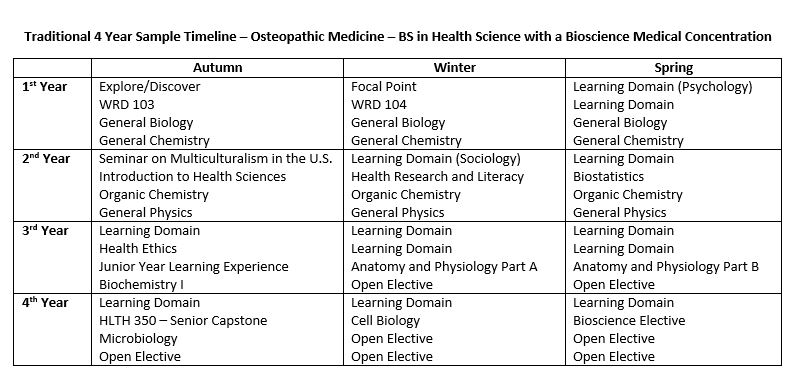Students should meet with their academic advisor and pre-health advisor each quarter to make sure they are taking the correct courses for their major/professional interest. Below is a sample timeline for a Health Sciences major.
Please be aware that DO schools do not require or prefer a specific major and the below timeline should not be used to replace meeting with an academic advisor.
